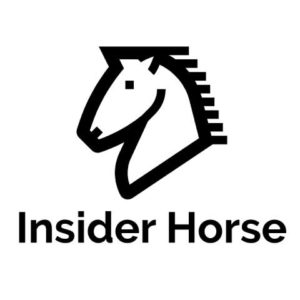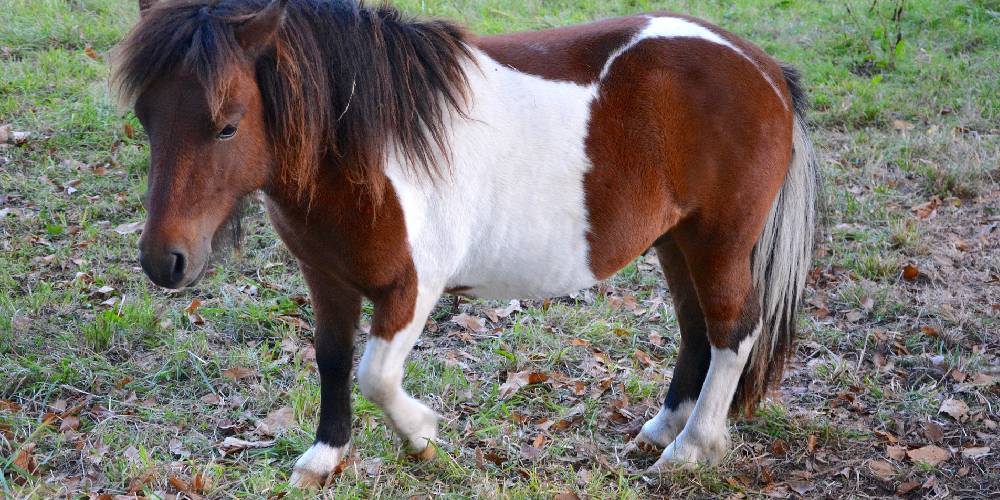Pawing is a very bad habit that many horses will do out of boredom, impatience, stress, or other reason. Like cribbing, pawing is a behavior that is categorized as a vice or stable vice. But what is pawing? Why do horses do it? And are there any negative outcomes to pawing in horses?
What Is Pawing?
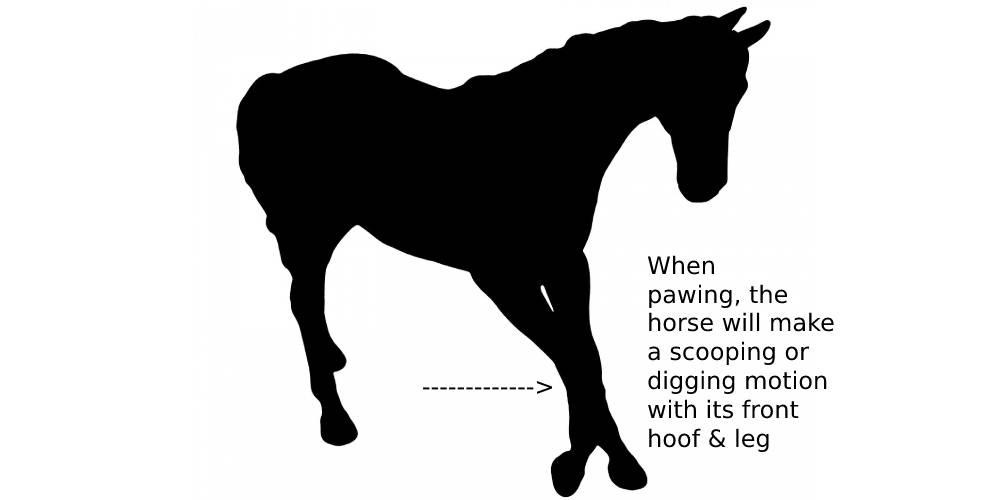
Pawing is a behavior in horses that is classified as a stable vice. This behavior is seen in horses of all shapes, sizes, types, breeds, and ages and it can start at any point in the horse’s life. Horses will generally start pawing out of boredom, impatience, or stress and once this habit is formed, it can be fairly hard to break. When a horse paws, he lifts one of his front legs in the air and makes a digging sort of motion with it and will usually make his hoof drag across the ground. In extreme cases, horses who paw will even dig holes in the ground of their stalls if they do it excessively in one spot.
Can Pawing Be Dangerous To The Horse?
I wouldn’t think that the actual action of pawing the ground could be dangerous, I would think that the potential injuries caused from pawing in the wrong places or pawing excessively would be more dangerous to the horse. Some of the things that may be dangerous to horses when it comes to pawing the ground could include:
- Digging holes in certain places where the horse may step in and get injured
- Hitting the horse’s leg on something
- Wearing the hoof down in an uneven or unnatural way
- Getting the hoof or the leg caught on or stuck in something
Why Do Horses Paw?
There are several reasons why horses may begin to paw. These reasons include:
- Stress
- Impatience
- Excitement
- Boredom
- Copying a neighbor
- Annoyance
For all or any of these reasons, horses may begin to paw. If put in any of these situations often, a horse can make an occasional pawing occurrence into a regular habit.
How Can I Tell If My Horse Is Pawing Just By Looking At His Stall?
If your horse is a chronic pawing machine in his stall when you are away, but a perfectly normal angel when you are there, this is a way to tell if your horse is a frequent pawer.
Look for holes, uneven bedding, trenches, drag marks, or dips in your horse’s stall. The reason why you should look for these things in your horse’s stall is the fact that if you can find any of these things in your horse’s stall, he is likely a pawer. I would recommend filling in any and all holes your horse may have created in his stall and try to even out his bedding and level the flooring.
How To Prevent Your Horse From Pawing
There are a numebr of things thatyou can do to keep your horse from pawing at all. The things thatI recommend trying with your horse include:
Giving Your Horse Toys!
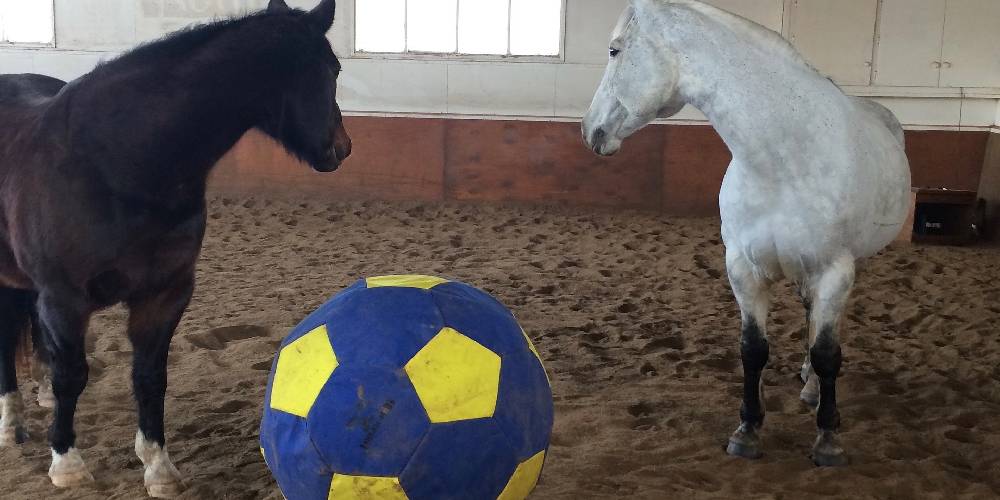
A lot of the pawing that a horse might do will be in his stall. The reason for this is the fact that his stall, especially if it is just a box stall, is a really boring place to be. Try to make it more fun for your horse by supplying him with different toys that he might like. Some toys or objects I recommend putting in his stall include:
- Exercise Balls
- Treat Dispensers
- Salt or Mineral Blocks
- Hanging Toys
- Traffic Cones (yes, I know it sounds like a weird choice, but horses actually like to play with traffic cones. Traffic cones and large, heavy and durable so they should easily be able to withstand the biting, kicking, and stepping that they would have to endure from a horse)
- Jolly Balls (a jolly ball is a heavy duty rubber ball with a handle on it so the horse can pick it up easily)
- Hay Balls (basically you put their favorite hay into a big rubber ball with holes in it and the horse will push it around and eat the hay out of it when they can)
Turn Your Horse Out More Often & For Longer Periods Of Time
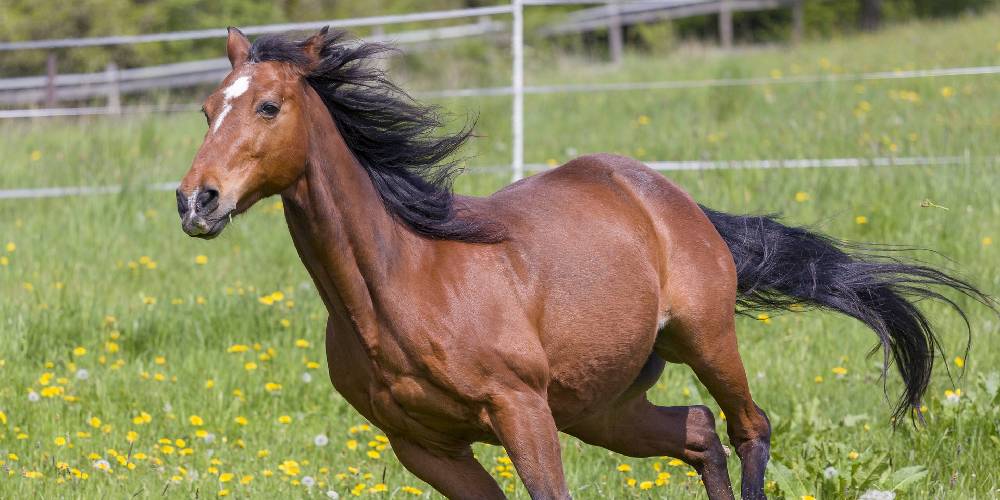
Horses need to have time to be horses. Basically, horses need to be able to run around, play, roll, and kick without being confined in a small stall. This si why your horse might need to have some time free to rn around. Without it, your horse is liekly to start getting bad habists and stable vices like pawing or even cribbing.
If your horse is alsready showing signs of pawing, turn them out more often for longer periods of time to let him stretch his legs and be a horse just a little bit longer so being in his stall is a little more bearable.
Stable Him Next to One Of His Friends
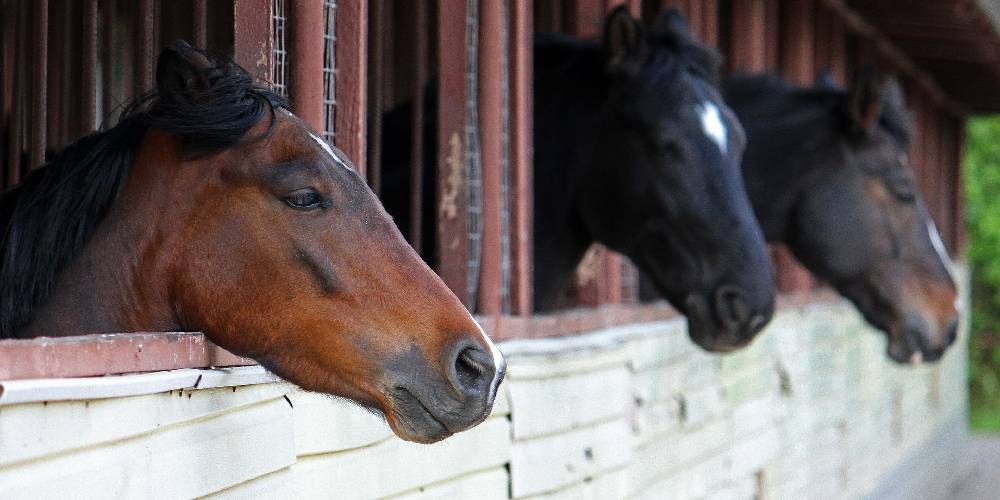
Horses have friends too. My old horse, Bronze, loved to be stabled next to his good buddy Cross Fiire. I noticed that Bronze did a lot better to be turned out with and stabled next to Cross Fiire than he did when stabled and turned out with a different member of the barn.
Horses are herd members so keeping them with or next to a horse that they would consider to be a closr member of their herd may help them to relax and lower the chances of them pawing from stress.
Give Your Horse A Job
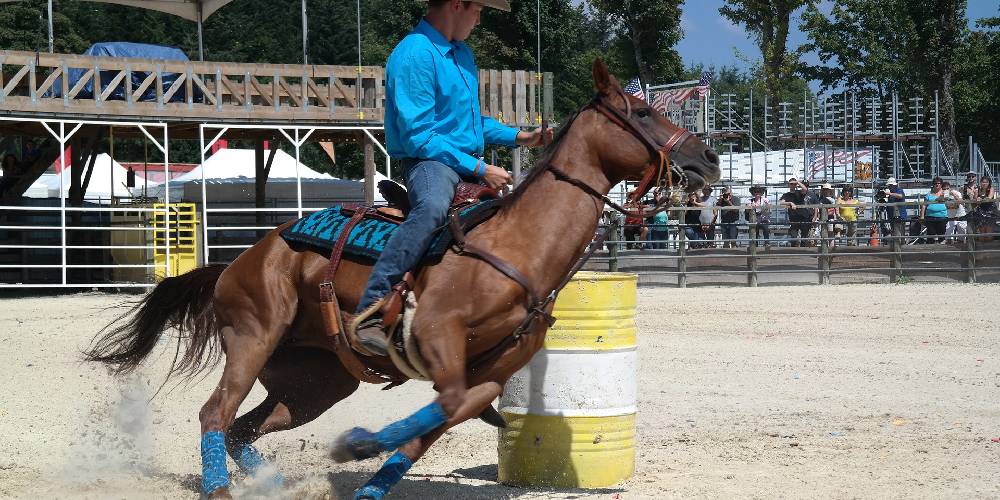
Horses that don’t really have a job or a purpose are a lot more likely to pick up a stable vice than a horse who has a job or a purpose. This is why I like to give my horses jobs to do. My old horse Bronze was a jumping and general riding horse and he knew when it was time to work. He loved to be ridden and loved to jump. This is partly why I think that he didn’t develop any bad habits or stable vices while I had himbecause he had a job and a purpose as well as the fact that his close herd mates and friends were always stabled by him.
My current gelding that I own, Cisco, has the job of giving riding lessons to little kids. Because he has a job that he likes to do and one that he does well at, It think that this, along with the fact that he is turned out in a large arena/paddock all the time, is why he does so well and doesn’t have any vices.
Can I Stop My Horse From Pawing?
Once your horse has learned how to paw, it is very unlikely that he would ever just stop. You can reduce your horse’s pawing by following the same suggestions I have to prevent your horse from pawing at all in the first place.
How Do Horses Start Pawing & Forming This Habit?
Horses will start pawing when stressed, worried, annoyed, impatient, bored, excited, or if their neighbor is doing it. Many horses will reflect the actions of their herdmates so if one herd member is a pawer, it is likely that other herd members will adopt this behavior too.
